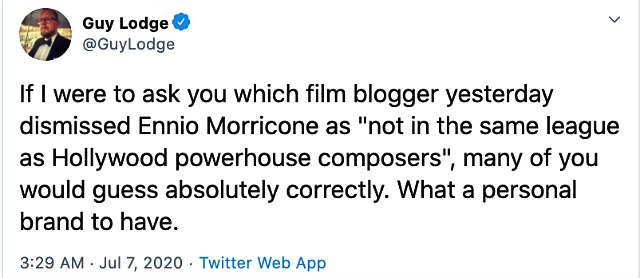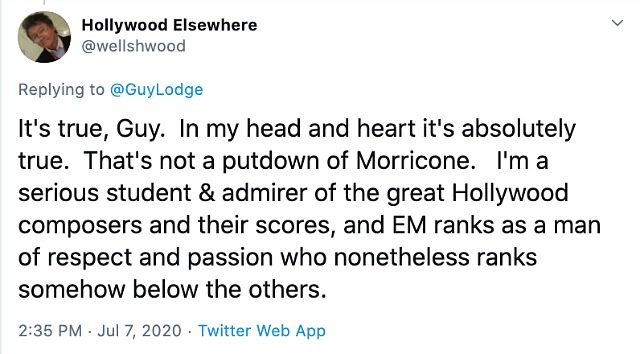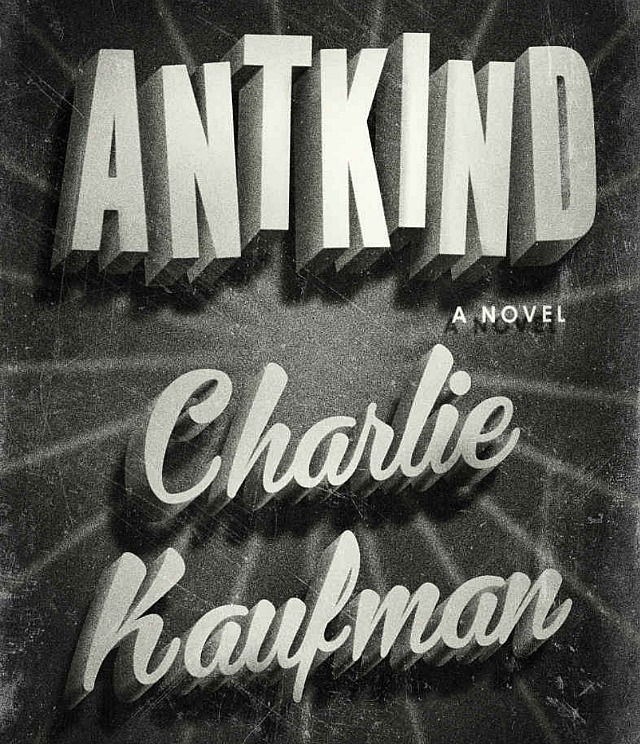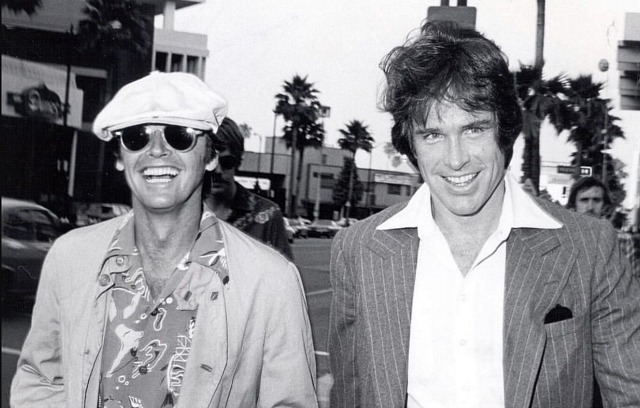It would appear that Rod Lurie‘s The Outpost has become, at least to some extent, the new American Sniper — a unanimously well-reviewed war flick that’s connecting with both urban and (perhaps particularly) heartland audiences.
It was reported two days ago that The Outpost is the top renter/seller on iTunes as well as FandangoNow. It still has that standing as of today (7.8). It’s also been reported that the stock price of Chicken Soup for the Soul Entertainment, owner of distributor Screen Media, had surged 26% due to Outpost popularity.
As one of the film’s earliest and most ardent supporters, Hollywood Elsewhere trusts that The Outpost will keep chugging and humming along, and that come award season Caleb Landry Jones‘ performance will continue to generate enthusiasm for a Best Supporting Actor nom.
A fair number of big-time distributors were offered The Outpost earlier this year. Everyone but Screen Media responded with the usual “uhm, we don’t know how to sell it.” Translation: We’ve forgotten how to sell well-crafted war movies on their basic merits, and Scott Eastwood, Orlando Bloom and Caleb Landry Jones aren’t big enough names.” Lurie to prospective distribs: “It’s a straightforward ‘support the troops’ heartland flick with a potential to be the next American Sniper, and it’s relatively inexpensive — how can you not make money with it?”
Screen Media, at least, was willing to take the gamble, and now they’re looking like the smartest kids in the room. All due credit to their foresight, business acumen and marketing (i.e., the little choo-choo engine than showed up the studios).
The original Screen Media plan was to debut The Outpost at South by Southwest and then open it nationwide theatrical run via Fathom, but COVID-19 killed Austin and then the recent surge destroyed the Fathom plan.
In a Deadline guest column, Lurie wrote that his “primary attention and anxieties for this past weekend were directed at how the military community would receive the film, in particular veterans of the Afghanistan War and, even more microscopically, the soldiers and families of the men who served at Combat Outpost Keating where the film is set. That would be the metric of success for this particular film.
“Last October, we showed the movie in rough-cut form to several of the surviving veterans and to family members of the eight men who died in this battle. Jake and I were both nervous wrecks. We had worked so hard on the film and been in constant communication with these people, and yet…well, who knew how they’d react?
“The release of the film prompted an avalanche of support from veterans of the war. Dr. Dan Barkhuff, a Navy SEAL and graduate of the Naval Academy, said it was ‘the best war movie since Black Hawk Down, maybe better.” (Perhaps a bit much, but we’ll take it.)
“A Green Beret with 24 years of service: ‘The authenticity in the film is amazing…it had me reliving the sights and smells of the Nuristan province.’
“On Reddit a veteran observed, ‘The best way to honor these men is to remember them, remember their families when you think of your loved ones, they had wives and children that will never see their husbands/fathers again.’
“A military spouse wrote, ‘If anyone in our country starts to lose respect for what our soldiers go through in a time of divisive politics; they need to see this movie. We owe all of them our deepest gratitude. I can’t thank you enough for putting this together.'”







